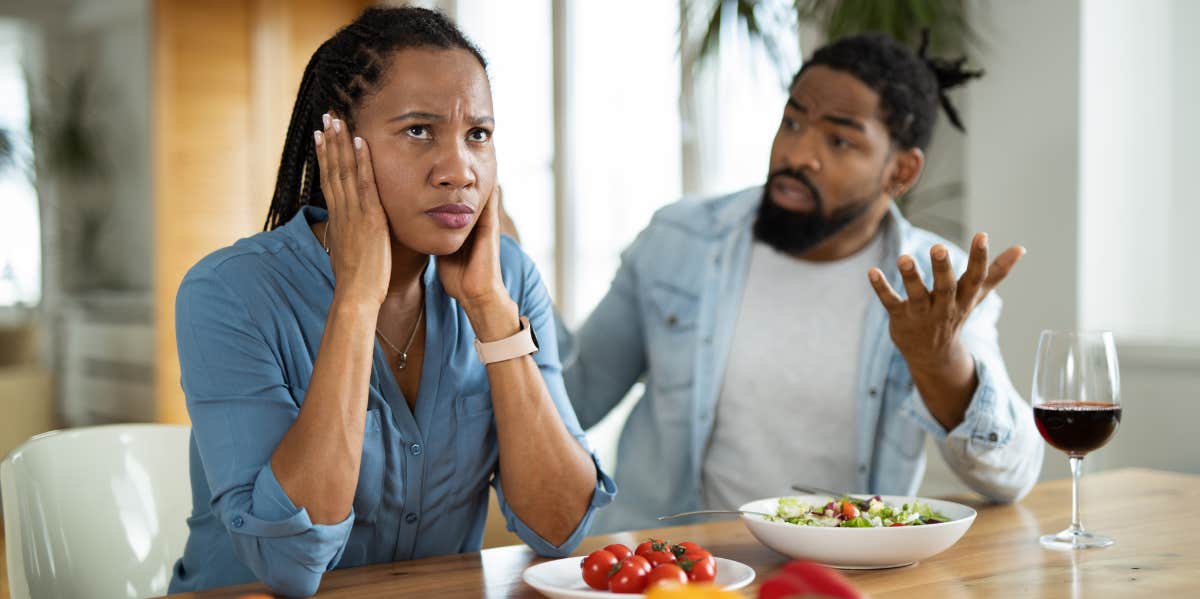5 Harsh Reasons People Won't Change, According To Experts
Change can be uncomfortable for myriad reasons.
 Goksi - Shutterstock
Goksi - Shutterstock Everyone has, at one point or another, felt like someone around them needed to change.
Or maybe they’ve felt like there are things about themselves that they should change.
But try as they might they were unable to force lasting change on someone else or realize it for themselves.
Change can be difficult because some people fear change because they are comfortable with the familiar and scared of the unknown. Even when they aren’t afraid, they might not have the discipline or conviction to see the necessary changes through.
With a plethora of reasons why a person simply will not change, everyone can come up with some excuse as to why they are not growing and transforming. But five YourTango experts have given us the biggest reasons that people avoid changing.
Here are five harsh reasons people won't change, according to experts:
1. Change is inconvenient.
“People often don't want to change because doing so could be uncomfortable, inconvenient, or undesirable. While being set in their ways may not serve them, changing something about themselves or their behaviors would force them to alter the fundamental belief they hold about their personality or a key value that supports the choices they make in life. First, in order for change to occur and to last, someone has to want to do things differently or act differently more than they want to stay where they are.
Secondly, they have to persist in executing these changes which can mean altering habits, routines, or interpersonal interactions. Some folks are ready for this type of commitment while others are not. Sometimes age is a factor too. As people mature into middle age or beyond, changing may not seem worth the effort or may not seem possible. One 80-year-old I know told me: "This is just who I am. People can accept it or not engage with me. I'm too old to change."
—Dr. Sharon Saline, Psy.D.
2. Change is uncertain.
“Often people don’t change because it gives them certainty when they can predict the outcome. As humans, we have a need for certainty, and we have a need for uncertainty. If our life has an overwhelming amount of uncertainty, we will still subconsciously attempt to get our need for certainty met. If this means being sure that all your dates will end badly, that you’re stuck in a dead-end job and have no way out, or whatever depressing self-fulfilling prophecy, it will be. We will continue to sabotage our own happiness for the sake of continuing the pattern.
It’s perfectly normal to look at other people when you’re married but if your husband is always the first one to like every Instagram model’s post, we might have a problem. Viewing and liking isn’t always an issue. Commenting and direct messages can be. It also says a lot about how we feel about the people in our lives when we see something that evokes a positive emotion, who do we choose to share it with?”
—Erika Jordan, Love Coach, NLP
3. They want to be accepted ‘as is’.
“Because they are waiting to be loved as the flawed or "wrong" part of themselves. Their inner child is wounded, and it means they unconsciously don't want to change, because changing means they would have to admit that the wounded and "wrong" part of themselves will never be loved for who they feel they truly are. This means they'll usually self-sabotage even if they do try to change, so they always revert back to that core wounded self. Because on some level, they feel that changing would mean abandoning themselves.
Therefore, they'll stay unhappy or imbalanced, thinking it's just "who they are" and that they "can't change" when really, it's because they're not resolving the deeper core wounding. They might be spending more time online than in the actual relationship or engaging more with new potential partners on social media than with their current partner.”
—Cassady Cayne, Love & Relationship Coach
4. They are right and valid.
“People don’t change because they know, absolutely with full certainty know, that they are right and that there is no other valid point of view. People won’t change because they are unwilling to entertain another opinion.”
—Susan Kulakowski, YourTango Expert
5. They feel safe.
“The fear of something new or different is deeply anchored in the old part of the brain, the survival function. It is beyond logic and based on a simple strategy: I survived this far not doing or engaging in a different way of thinking or acting. I was safe. Will I be safe with this new thing?
When we are unhappy with a relationship, we automatically look for alternatives as we want to be happy. This expresses itself in social media use by looking for meetings, activities, and places to connect with other women— socially or otherwise where the spouse won't go. More desperately unhappy husbands may search for alternative dating sites, even porn to take love into their own hands.”
—Fritz George Sauer, Stress Expert, Author, Coach
NyRee Ausler is a writer who covers lifestyle, relationship, and human-interest stories that readers can relate to and that bring social issues to the forefront for discussion.

